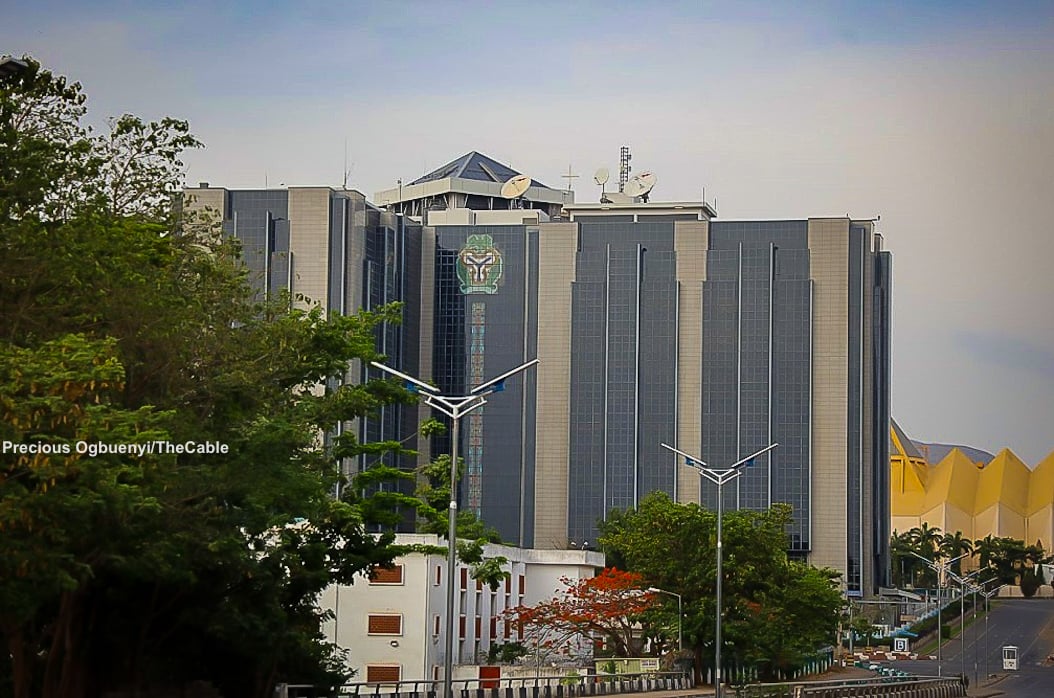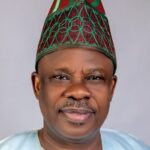By Chinwendu Obienyi
Despite a sixth consecutive month of private sector expansion, Nigeria’s economic recovery is under increasing threat from cost-induced pressures that are eroding business margins, depressing confidence and exposing structural vulnerabilities across key sectors.
The latest Purchasing Managers’ Index (PMI) for May 2025, compiled by the Central Bank of Nigeria (CBN), printed at 52.5 index points, comfortably above the 50-point threshold that separates expansion from contraction.
This headline number suggests that the economy continues to recover from the deep dislocations of recent years. But the underlying dynamics tell a more nuanced and sobering story.
While overall business activity improved, input costs surged at a pace that outstripped output price growth, pushing companies into uncomfortable territory. Firms are increasingly forced to absorb costs rather than pass them on to consumers, resulting in tightening profit margins and heightened pressure on operational sustainability.
Sectoral snapshot
A deeper dive into the PMI data reveals a fragile and uneven recovery across the Agriculture, Industry, and Services sectors.
Specifically, the agriculture sector emerged as the strongest performer in May, with a PMI of 53.4 index points. New orders rose sharply to 54.7, suggesting strong seasonal demand, while farming activity posted a healthy 53.9. Employment and inventory levels also improved, benefiting from the planting season and greater agro-commodity movement.
However, this performance masks key vulnerabilities. Sub-sectors such as fishing and fish farming contracted due to logistical bottlenecks and rising input costs – challenges that continue to plague agricultural producers across the country. Notably, the cost absorption index in agriculture climbed to a sector-high of 10.5 points, revealing a dangerous disconnect between soaring production costs and constrained pricing power.
In the industrial sector, the PMI stood at 51.6, up slightly but indicative of sluggish growth. Output growth reached 53.1 points, driven largely by petroleum and coal product manufacturing. Yet, the broader industrial picture was mixed: only nine of the seventeen sub-sectors expanded, while eight contracted. Paper products posted the steepest decline, reflecting acute cost pressures and softening demand.
New orders (51.4) and employment (50.1) improved only marginally, suggesting that while the sector is in recovery mode, momentum is weak and uneven. Firms in energy-intensive industries continue to struggle with elevated input prices and FX-induced cost volatility, especially in raw materials and machinery imports.
The services sector maintained modest momentum with a PMI of 51.7. Sub-sectoral performance was split, with only half of the fourteen surveyed sectors recording growth. Educational services led the gainers, while transportation and warehousing showed the sharpest contractions—underscoring the sector’s sensitivity to fuel prices and declining consumer demand.
Output (51.5) and new orders (52.5) were in positive territory, and employment gains were steady. However, services firms reported limited pricing power, resulting in revenue pressures that could deter future hiring or investment.
Critically, a consistent theme across all sectors was cost strain. The gap between input and output prices widened across the board.
This left businesses facing higher expenses for fuel, logistics, FX, and imported materials.
According to economic experts, the danger is no longer hypothetical. “The margin compression we are seeing is not cyclical—it is fast becoming structural. The cost absorption strategy being adopted by many firms is unsustainable in the medium term,” analysts at Cowry Research said in an emailed note.
When firms cannot raise prices to match rising costs, they either cut back production, trim staff, or delay investment. Any of these actions could undercut the tentative recovery Nigeria has been experiencing since late 2024.
Indeed, while employment indicators in May rose modestly—overall index of 51.1, analysts warned that prolonged cost stress may reverse job gains. Without a clear path to easing inflation, stabilizing the naira, or lowering borrowing costs, businesses may soon be forced into difficult decisions.
Furthermore, while demand has shown resilience in recent months, sentiment indicators suggest that confidence is fragile. Firms remain cautious about hiring, capital investment, and inventory stocking. Thus, the cautious optimism seen earlier this year is now being tempered by concerns over policy direction, currency volatility, and the inflation outlook.
Although the CBN has attempted to anchor inflation expectations and stabilize the currency through a mix of rate hikes/unchanged parameters and intervention strategies, the monetary policy levers are constrained without complementary fiscal action.
Recent reforms from the administration led by President Bola Tinubu, including partial subsidy removals and FX liberalization, have introduced near-term pain that businesses are still absorbing. While these reforms are directionally positive for the long term, their short-term impact has been inflationary and disruptive for firms operating on thin margins.
Hence, what is clear from the May PMI data is that Nigeria’s economy is growing but it is coming at a cost because growth is being driven more by necessity rather than confidence, and the underlying pressures are not abating.
Experts’ react
Reacting to the development, analysts who spoke to Daily Sun via emailed notes, called for a strategic recalibration while adding that immediate steps could include fiscal interventions to support priority sectors, targeted FX window access for manufacturers and farmers, and urgent logistics improvements to reduce transport and energy costs.
Head of Research at FSL Securities, Victor Chiazor, said, “At a structural level, productivity-enhancing reforms remain critical. These include agricultural value-chain investments, energy market stabilization, and digital infrastructure for services and SMEs.
Policymakers must also rethink how to cushion businesses from the impact of global commodity volatility. With oil prices and global interest rates still volatile, Nigeria remains vulnerable to external shocks and firms have little buffer to absorb further blows”.
Cowry Asset Management in its weekly financial market review, said that although the PMI data sends a mixed signal, rising output, stronger demand and increased purchasing activity all point to a recovery taking shape.
“On the other hand, persistent inflation, cost pass-through limitations, wage pressure, and faltering sentiment raise red flags about the durability of that recovery. The gap between input and output prices is no longer a mild imbalance—it is becoming a structural threat to profit margins and, eventually, to employment and investment.
With a composite PMI at 52.5, Nigeria’s economy is indeed growing. But if margin pressures are not addressed through fiscal support, FX stability, and productivity reforms, growth may come at the cost of corporate resilience and macroeconomic stability. This is not a moment to relax, rather it is a moment to recalibrate”, the research and investment based firm said.
Analysts at Cordros Research, said, “Looking ahead, we expect sustained expansion in private sector activity, underpinned by improving macroeconomic fundamentals such as a more stable naira and moderating inflation. Nonetheless, tight financial conditions remain a potential headwind to broader economic performance in the near term”.
The report paints a picture of cautious optimism laced with growing tension. Economic activity is expanding, yes but the engine is running hot. If unchecked, rising cost pressures and shrinking margins could derail the recovery before it gathers pace.
This is not a time for complacency. It is a time for recalibration of policy, expectations, and strategies because without meaningful interventions to ease the burden on businesses, Nigeria’s growth story may become a short-lived chapter.

















Leave a comment